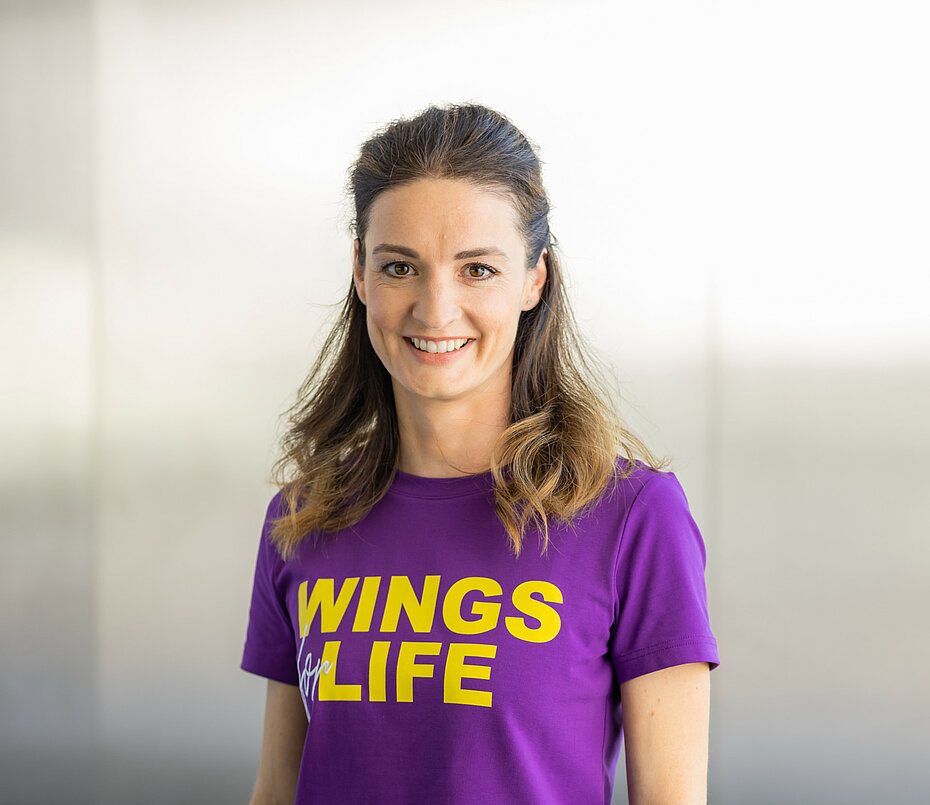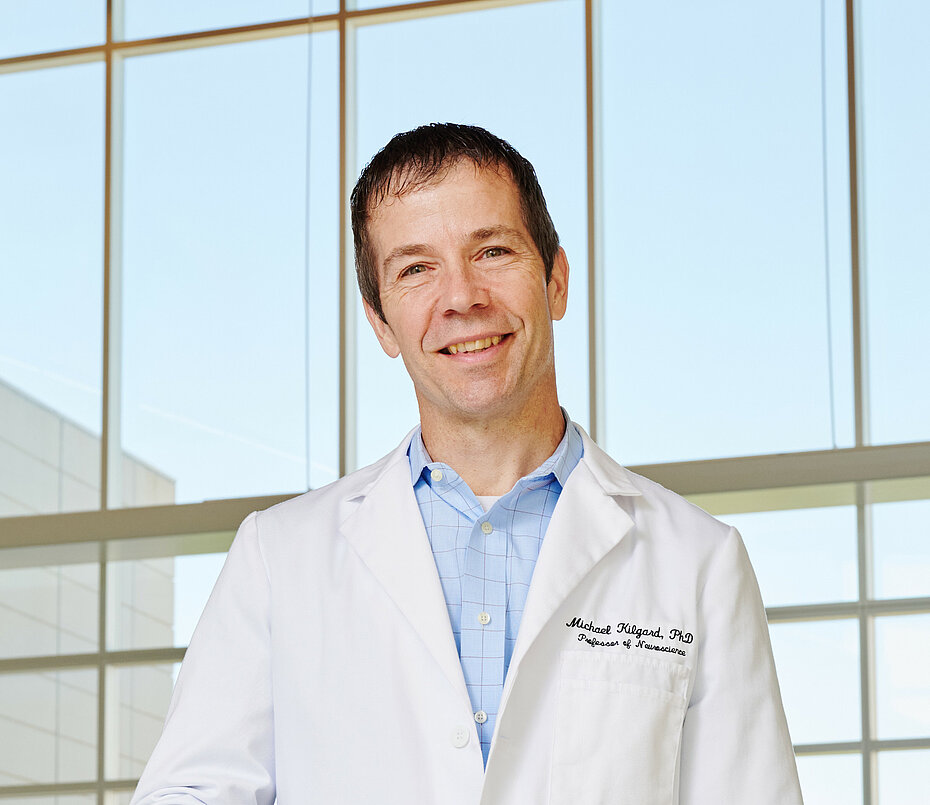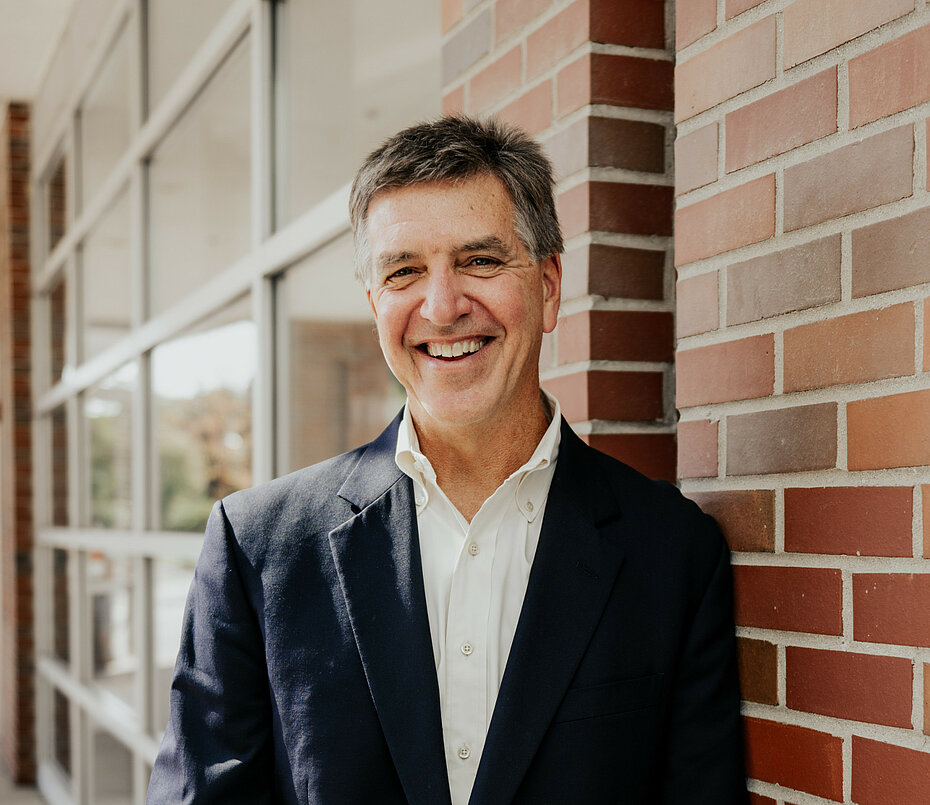The Wings for Life World Run will be held for the 10th time in 2023. It is a perfect opportunity to look back and see how far research into curing spinal cord injury has developed since the first event.
“We are already very much looking forward to May 7th, 2023. The Wings for Life World Run is celebrating a special anniversary,” says Anita Gerhardter, CEO of the Wings for Life Foundation. It is the 10th time that people all over the world will come together to run for those who can’t.

“This run is something very special. Anyone can take part and all entry fees are donated to a good cause.”
At the time of writing, over a million participants have been caught up by the Catcher Car, the mobile finish line that is a key feature of this race. What better reason to take stock of the progress that has been made in spinal cord research? Anita Gerhardter answers our questions together with Dr Verena May, Scientific Coordinator for Wings for Life.
Let’s start with the facts. How much money has been raised by the Wings for Life World Runs?
To date, 38.3 million euros have been raised in donations, all of which has been invested in research. In 2022 alone, the Wings for Life World Run generated 4.7 million euros in donations due to the 161,892 participants from 192 countries. As Anita Gerhardter says:
“The more money we raise, the more studies we can help fund – and the faster we can reach our overall goal.”
As well as providing funding for projects, the Foundation develops programmes that aim to speed up the research process. One example is the Accelerated Translational Program, ATP for short. This helps shorten the time taken for preclinical research projects to reach the clinical study stage, where they can actually be tested on people. The programme not only provides researchers with money, but also gives them access to knowledge and an international network of experts.
How many research projects has Wings for Life helped to fund so far?
A total of 276 different projects have been provided with funding so far, after going through a strict selection procedure. Dr Verena May explains: “There are currently 74 research projects around the world, including 16 new ones since 2022. These focus mainly on regeneration, reconstruction and secondary damage.”

Has the nature of these research projects changed over time?
Dietrich Mateschitz and Heinz Kinigadner set up Wings for Life in 2004. Back then, only a small number of projects were focusing on fundamental research – and there was insufficient funding as well. “This basic research is still very important,” says Dr Verena May. “We have already been able to help a number of projects progress from the preclinical research stage to clinical studies involving patients. That is marvellous – and an important step.”
How has the Wings for Life Foundation itself evolved over the past years?
Anita Gerhardter: “We have grown in many different directions.” The organization’s workforce has now increased to around 30 people – not only in its head office in Salzburg (Austria), but also in the UK and USA. As well as this, the Foundation interacts regularly with a network of experts around the world. It is currently financing projects in more than a dozen countries on four continents. Once completed, these projects will publish their findings in specialist journals to make them available for future research.
What are the most exciting approaches right now?
Thanks to the financial support provided by Wings for Life, researchers all over the world are currently able to look for solutions in a number of different areas. For example, Professor Michael Kilgard from the University of Texas is working on stimulation of the vagus nerve, which would allow people with spinal cord injury at a high level to move their hands again. Or Grégoire Courtine, from the École Polytechnique Fédérale de Lausanne (EPFL) in Switzerland, who has used electrostimulation to enable people with spinal cord injury to walk a few steps again. Another current key area is the research being undertaken by Professor Stephen Strittmatter. This includes a study at Ohio State University on “Nogo Trap”, which allows the body to regenerate severed nerve fibres, thereby restoring a neural network.


All of these researchers come together once a year at the Scientific Meeting organized by Wings for Life. Why is this?
Researchers from all over the world come to Salzburg every spring to present their current projects and interact with one another. This meeting was also held during the COVID-19 pandemic – via a virtual platform that was specially created for the purpose. Dr Verena May: “We have seen groundbreaking basic research, fascinating approaches that are well on their way to the clinical study stage, and also a number of studies that are already testing new approaches on people. The sheer scope covered by these studies is impressive.”
Are we any closer to finding a cure for spinal cord injury compared to back in 2014?
Anita Gerhardter: “Yes, absolutely. But no one can say for sure exactly what kind of time frame we are talking about. Even though there will never be a wonder pill that cures all cases, great progress has been made over the past few years. There has been a whole host of interesting developments. For some time now, it has no longer been a question of whether there will ever be a cure but rather when this will be. The Wings for Life World Run is playing a key role here by raising both awareness and valuable donations.”
Join thousands of people around the world at the exact same time on May 7 for the 10th anniversary Wings for Life World Run. We run for those who can't.
Sign up now and take part wherever you are!
If you sign up for the App Run between January 27th and February 14th, 2023 Philips sports headphones will double the fun by gifting you a 2nd App Run to bring a friend to the Wings for Life World Run. Plus a voucher for two new pairs of Philips sports headphones for half price*!
*this offer is only valid in Europe
